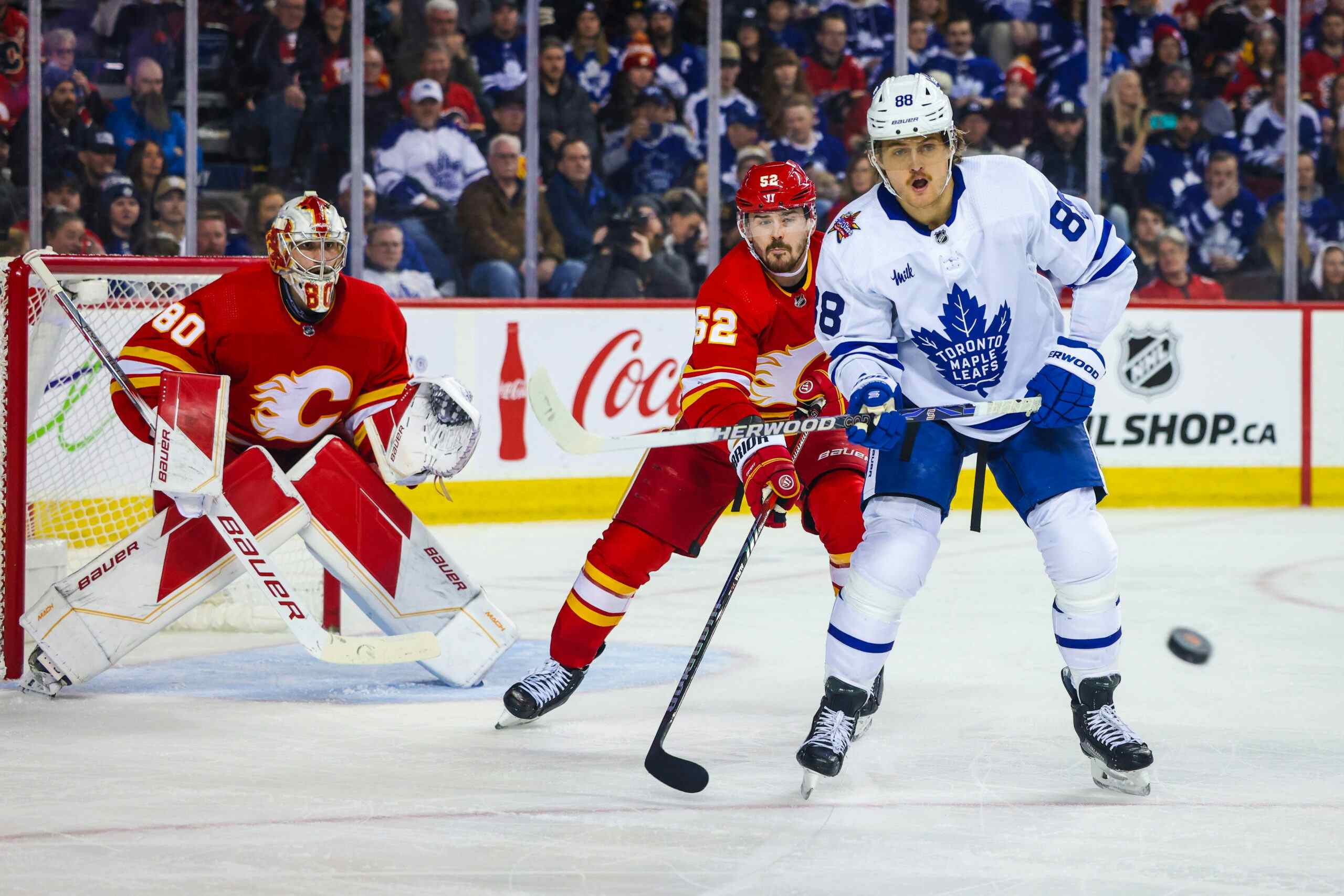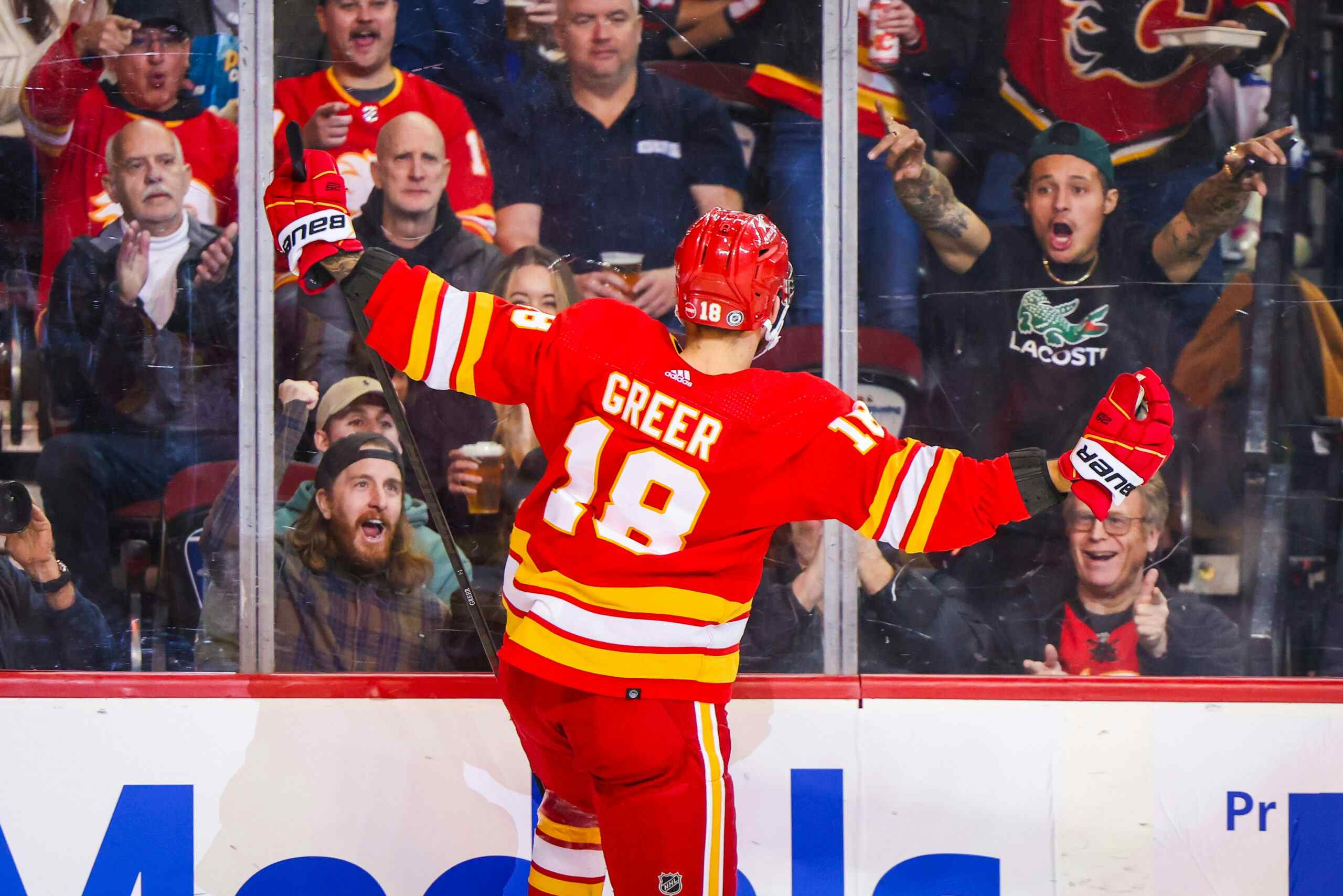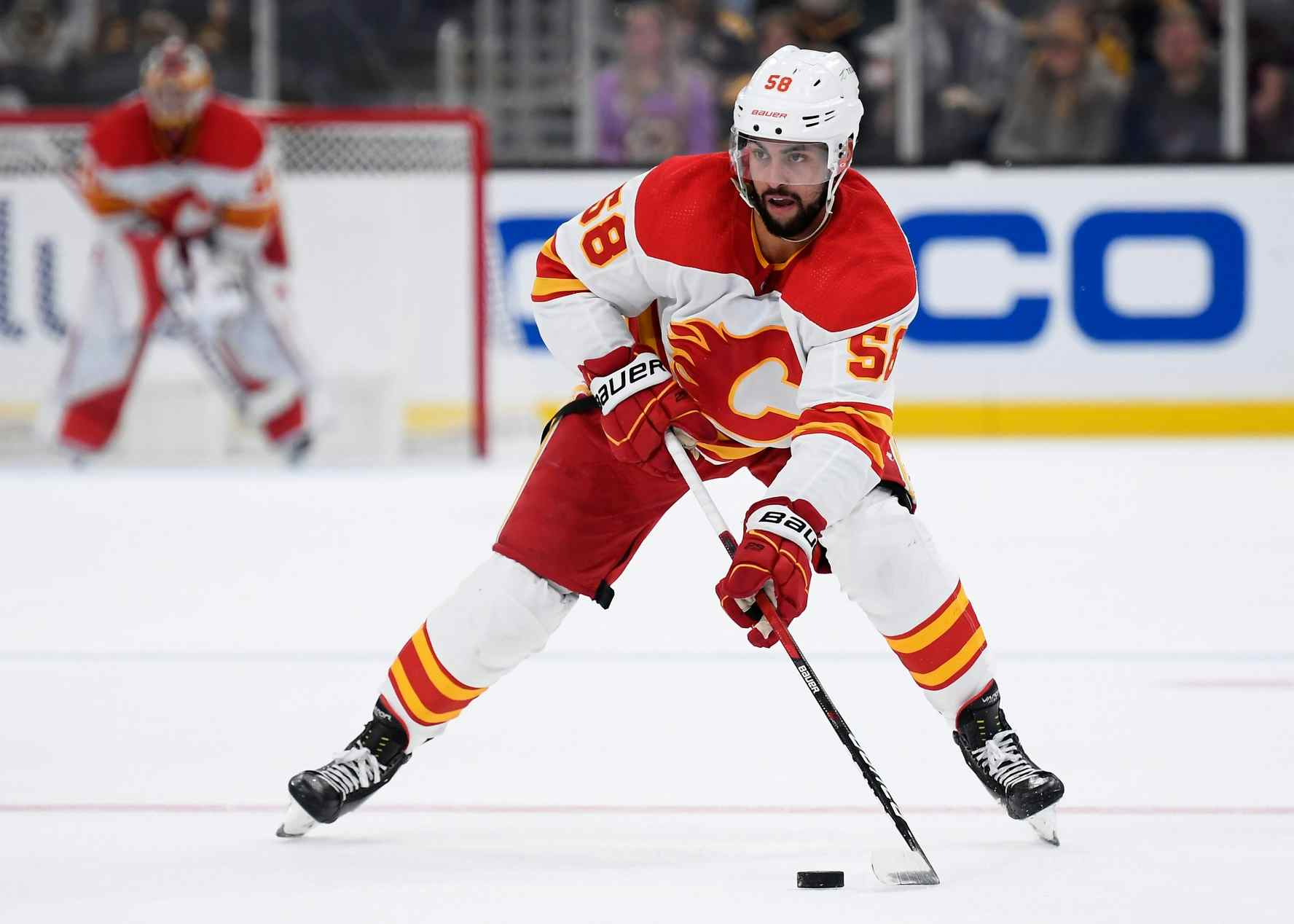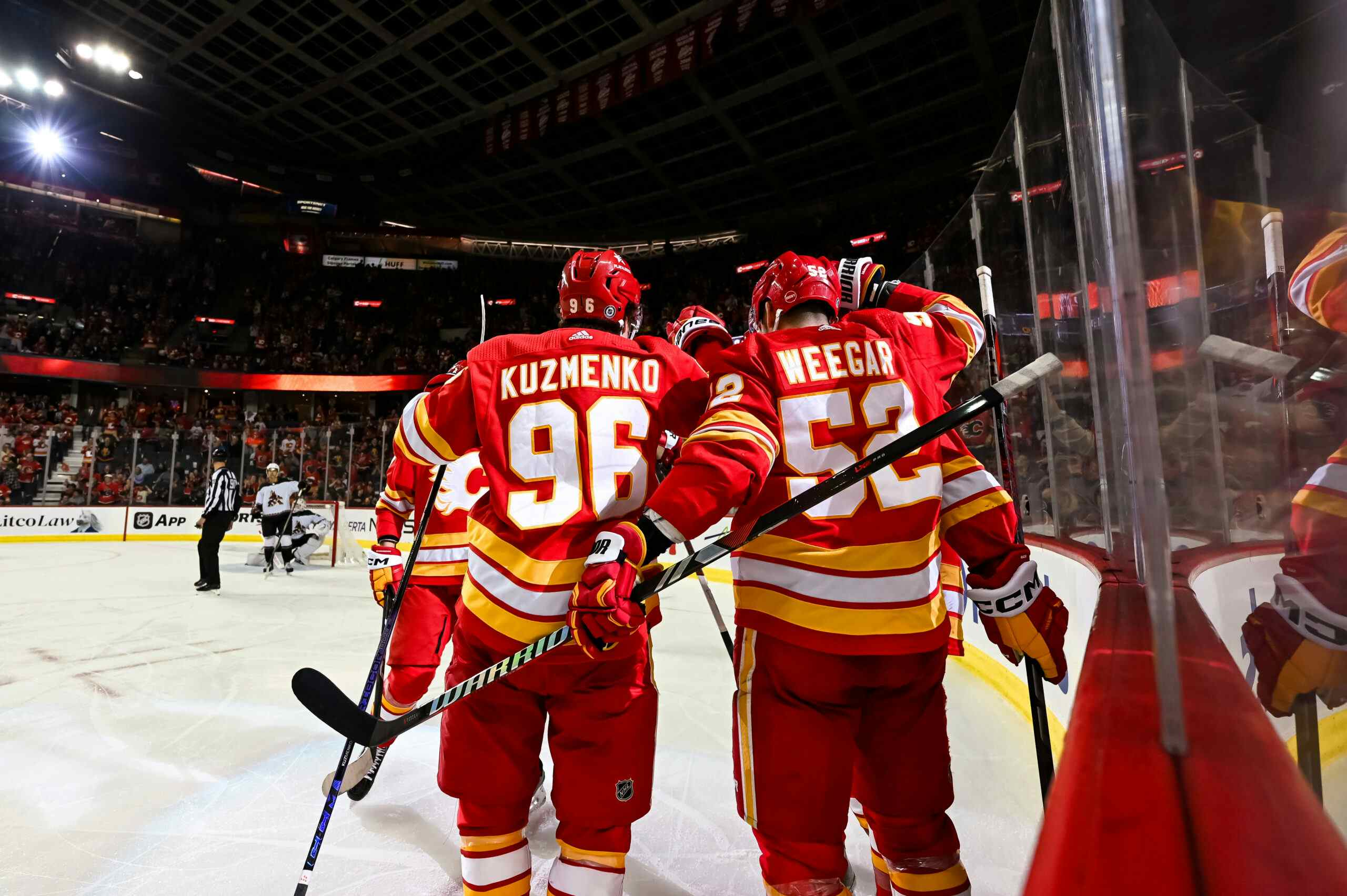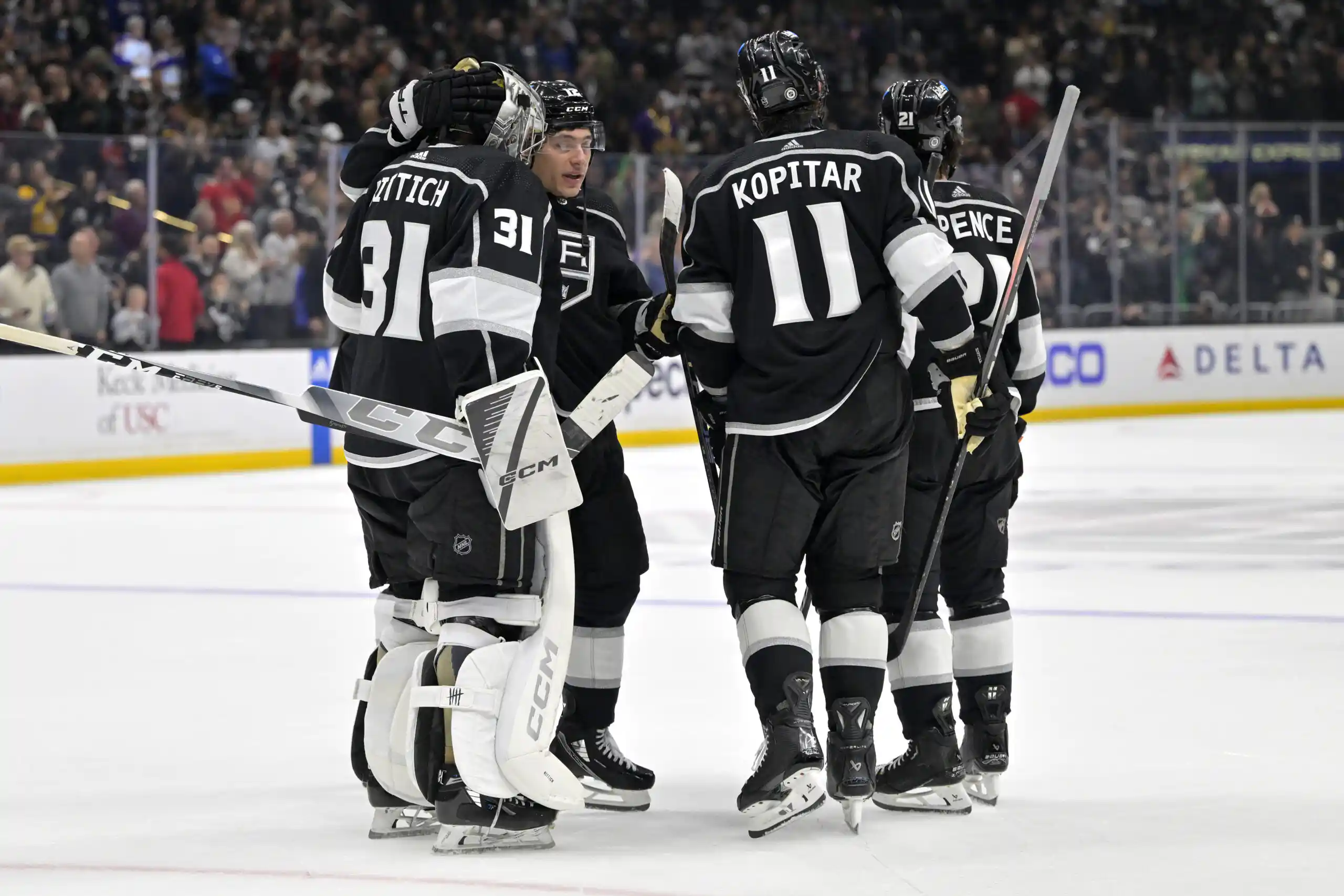Is it the right time for the Flames to be aggressive?
By Ari Yanover
8 years agoIt would seem the Flames are not satisfied with where they currently are. That’s good: ultimately, the goal is to win the Stanley Cup, and the Flames, in their present incarnation, aren’t even close.
The Chicago Blackhawks are one win away from their third Stanley Cup in six years. Do you think the Flames can contend with them? No, they can’t. They played surprisingly tight games over the regular season, but this is a team that’s next level.
From the Flames’ perspective, they’re probably still a few levels away yet. They’re the team they should be aspiring towards, though, and at present time, it certainly looks like they’re trending that way.
Will being aggressive now, as we enter the third year of the rebuild, help?
Simultaneous aggression and caution
The Flames want to get better now, but they’re still very much a rebuilding team. Rebuilding requires patience. The good news is, that hasn’t been forgotten. While there’s cap space aplenty to swim in in Calgary right now, that won’t be the case for much longer, and portions of the budget have to be set aside for the impending multi-million raises for a couple of young 20-somethings.
The idea of re-signing Mark Giordano, who will be 32 to start the next season, to a long-term deal like Johnny Gaudreau and Sean Monahan is slightly concerning, though. Of course he’s going to be costly – and the guy who should be a back-to-back Norris winner has been playing way below budget for a while now – but he’s also going to decline. No matter how good he is, signing an aging veteran to both term and money could become a problem down the line.
Which explains the aggression. Giordano is only going to have so much longer of being able to play at such a high level. If the Flames want to win before his contract turns into a burden – which is a very real possibility in the future – it’s going to have to be soon.
The good news is, with the right moves, it could happen. The Flames had poor underlying stats this past season. They’re still a team on the rise, and they have excellent young pieces with which to work. Play their cards right, and improvement could be very rapid, and very real.
Trades and free agency
So how aggressive is aggressive, anyway?
Jiri Hudler is possible trade bait. He had an unprecedented offensive season this past year, and of course, it’d be ideal if he could repeat it. The numbers check out in that case, though: he’s a career high percentage shooter, and assuming he spends more time on the top line, he’ll be given the time and talent with which to work.
However, he is also 31 years old, and eventually, his decline will come as well. The Flames are only interested in selling him if the return is massive, which, at this point in time, is the right way to go. That’s aggressive caution: “We’re willing to trade away our leading scorer” is the aggressive part, because not many teams would really like to entertain that idea; “but you have to make your offer damn good” is the cautious part, because trading Hudler for the sake of trading him makes no sense. If he can bring back a long-term upgrade, you do it, because the short-term doesn’t matter nearly as much right now.
Hudler isn’t the only potential trade bait, though, or at least he shouldn’t be. Dennis Wideman and Kris Russell were not an adequate second pairing, let alone first. A deep team would have them as their bottom guys.
Wideman is also probably not going to score 50 points again. While there’s reason to believe Hudler can repeat his offensive outburst, that reasoning doesn’t apply to Wideman. He had a career high shooting percentage, one never matched before, and he’s 32. If any team is desperate for backend scoring, he’s the guy you try to sell.
To add to that, if any teams wanting a defenceman also buy into romanticizing shot blocks, then you capitalize on Russell’s year. Russell has never shown true success as a top four defenceman, and having him back in the top four to start next season probably isn’t ideal for a reportedly aggressive team.
That brings us to free agency. It would be pretty aggressive if the Flames got rid of both their second pairing guys, wouldn’t it? How aggressive would it be if they signed not one, but two big name defencemen on the open market to replace them? Cody Franson, Andrej Sekera, Mike Green, Christian Ehrhoff… There are plenty of options, and the upgrade would be both intense and immediate.
It’s not as though there isn’t a precedence for this either; just last year, the Washington Capitals signed both Brooks Orpik and Matt Niskanen to big contracts. The Flames have a lot of room with which to work, although they’ll have to be smart about their spending to keep it that way.
These are just two ideas of what could be many ways to improve a team in the now. The Flames may see their cap space evaporate, but as long as enough is left over to re-sign the big name players already in-house, it may not matter. After all, cap space doesn’t score goals.
And because we keep talking about size…
Adding size for the sake of adding size simply does not work.
The Flames and Hawks are roughly the same size. Despite being apparently tiny – after all, if we’re going to talk about how small the Flames are, we have to talk about how small the Hawks are, too, their playoff record be damned – the Hawks seem to be doing pretty well for themselves. So why is size a factor for Calgary, but not Chicago?
The Blackhawks jettisoned Brandon Bollig, and it didn’t hurt them in the slightest. While they lost some size, they also lost a player who didn’t add anything. It was addition by subtraction.
It’s not that the Flames need to be against adding size; it’s that they need to be smart about it. Bollig and Deryk Engelland do make the Flames bigger, yes. They also make them worse. The Flames could get smaller next season and actually be better for it.
Just something to think about.
So, is it the right time?
Why not?
The Flames are aware some of their cheap players are about to become incredibly costly. They’ll no doubt have cap space set aside to account for that.
As long as they don’t lose their sense of awareness, then everything’s fine. We’re talking about a team that defied the numbers and blew everyone’s expectations away. The next step is to stop defying the numbers, and to do that, Calgary needs massive upgrades in most areas.
Contingency plans need to be made in case the Flames’ high shooting percentage from this past season does not repeat itself. To take the next step, they cannot be a one-line team. The defence is a train wreck after Giordano and TJ Brodie. Furthermore, of the good players on the Flames, most are in their early-mid 20s, but Giordano, in his early 30s, throws a real wrench into things.
If the Flames want to directly build off of the success their young team experienced out of seemingly nowhere, then they’ll need to be working on it now. The west is deep in the NHL, and the Flames’ playoff spot could easily be usurped, even if they do get better for next season.
At the same time, with prospects still developing – and that still includes guys like Monahan and Gaudreau – patience is also needed. It’s a rebuild, and rebuilds take time.
Better an amped up rebuild than a pussyfooted retool, though. Calgary tried that last approach for a few seasons. It didn’t work. They only started turning the corner once the rebuild began.
So sure, be aggressive. As long as it’s smart, and the long-term is more highly regarded than the short (i.e. acquire players who would help not only in the now, but five years down the line as well). It’ll take a lot, but in this situation, proactivity is needed.
We could be looking at a completely different roster, and considering what the Flames had to work with last season, there’s nothing wrong with that.
Last season shouldn’t have happened, but maybe they can make it look like not a fluke.
Recent articles from Ari Yanover

